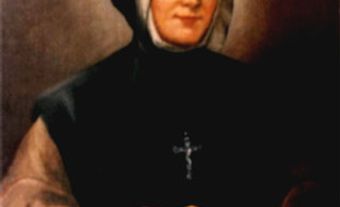Robert “Robbie” Baldwin Ross, journalist and art critic (born 25 May 1869 in Tours, France; died 5 October 1918 in London, United Kingdom). Ross is best known for his association with dramatist Oscar Wilde.
Early Life
Robert Ross was the youngest of five children of John Ross and Augusta Elizabeth “Eliza” Baldwin. His father was a Canadian politician who held numerous prominent positions in colonial government. Robert Ross was the grandson of Robert Baldwin — the Canadian political reform leader who served as joint premier of the Province of Canada. In 1866, the Ross family moved to France. In 1869, John Ross was summoned back to Canada to serve as Speaker of the Senate. His family, which now included the infant Robert Ross, soon followed. John Ross died in January 1871. In April, Eliza took her children to London, England, where she believed they would receive a better education. As a boy, Robert Ross was under the guardianship of his brothers Aleck and Jack.
Education
Robert Ross attended Sandroyd School, a preparatory school at Cobham in Surrey, where he was more adept at academic subjects than at sports. Although Ross won a classical scholarship to a prestigious secondary school, his mother decided to have him home-tutored. For the next four years, he was taught by his mother and private tutors. His program included educational tours of the European continent. There, he developed an advanced knowledge and understanding of art. He also became a strong believer in Roman Catholicism. (See also Catholicism in Canada.)
In the autumn of 1888, Ross was accepted at King’s College, Cambridge. There, he wrote for student publications The Gadfly and Granta. However, his articles antagonized certain students and faculty members. A group of students seized Ross and threw him into one of the school’s fountains. The assault might have also been due to the suspicion that Ross was gay. (See also Lesbian, Gay, Bisexual and Transgender Rights in Canada.) As a result of the dunking, Ross caught pneumonia and suffered mental anguish. He was angered by the college administration’s failure to punish his assailants and soon dropped out.
Robert Ross and Oscar Wilde
The circumstances under which Robert Ross met Oscar Wilde are disputed, but it probably took place in 1886. By 1887, Ross was a boarder at the Wilde family’s London home. It is almost certain that Wilde’s encounter with Ross was his first same-sex relationship. The passionate love affair between 17-year-old Ross and 32-year-old Wilde was short-lived. Nonetheless, it marked a transformation in Wilde’s life. Both Ross and Wilde moved on to other relationships, most notably Wilde’s ill-starred affair with Lord Alfred “Bosie” Douglas. However, the two remained close. Ross was enthralled by Wilde’s wit and literary brilliance. Ross remained a loyal friend and confidant for the rest of Wilde’s life. He was also a friend to Wilde’s wife, Constance, and later to their sons, Cyril and Vyvyan.
Lord Douglas’ father, the Marquess of Queensberry, objected to Wilde’s relationship with his son. When they persisted, the Marquess of Queensberry accused Wilde of having gay sex, which was illegal in the United Kingdom until the late 1960s. Wilde felt that he had to sue the Marquess for libel. Ross unsuccessfully advised Wilde not to take legal action. He also failed to convince Wilde to flee to France when it became clear the legal proceedings were going against him. Wilde was eventually arrested on indecency charges. Ross then removed personal papers and manuscripts from Wilde’s home library to prevent them from being seized by the prosecution.
After Wilde’s imprisonment, Ross began a campaign to raise funds to pay off Wilde’s legal costs and bankruptcy debts. He also visited Wilde in prison. A letter Ross wrote during a visit is a first-hand account of Wilde’s physical and emotional state at the time. Ross also found himself in the delicate position of being an intermediary between Wilde and Constance as well as between Wilde and Douglas.
Wilde appointed Ross as his literary executor, which meant Ross would manage his works after death. After Wilde was released, Ross met him in Dieppe, France. There, Ross helped him adjust to his life outside prison but in exile. He devised the name Sebastian Melmoth as Wilde’s alias. Wilde entrusted Ross with the original copy of his emotional 50,000-word letter to Bosie, which Ross entitled De Profundis. Ross contributed constructive criticism to Wilde’s epic poem The Ballad of Reading Gaol. It was through Ross’ efforts that this work was first published. After Constance’s death in April 1898, Ross made sure that her trustees continued to pay Wilde the allowance she had provided for him.
Ross was present when Wilde died in Paris on 30 November 1900. He brought a priest to the bedside so Wilde could be accepted into the Roman Catholic Church. Ross made arrangements for Wilde’s modest funeral and first burial in an undistinguished cemetery. He later had Wilde’s remains transferred to Père Lachaise Cemetery in Paris. He also had a sculpture by Jacob Epstein erected over the grave. (See also Funeral Practices in Canada.)
Ross was largely responsible for rehabilitating Wilde’s reputation and preserving his literary legacy. As Wilde’s literary executor, Ross helped publish multiple works. An expurgated version of De Profundis was published, although the complete version would not be published until 1962. Richard Strauss would write an opera based on Wilde’s play Salomé. A collected works edition of Wilde’s writing was also published. Within a few years of Wilde’s death, his bankruptcy was cleared. For much of the time that Ross managed Wilde’s estate, he endured a personal vendetta at the hands of Bosie Douglas.
Personal Career and Death
Robert Ross wrote short stories and articles for various publications. He also wrote a biography of artist Aubrey Beardsley and a collection of previously published short stories and reviews called Masques & Phases. However, he was best known professionally as an art critic. He was the art critic for the Morning Post. He also served as a member of the Committee of the National Art Collections Fund. His circle of friends included George Bernard Shaw, Thomas Hardy, H.G. Wells, Siegfried Sassoon, Robert Graves and Herbert Asquith.
Ross died suddenly at his home from heart failure. In 1950, in accordance with Ross’ wishes, his ashes were placed in a prepared cavity in the monument on Wilde’s grave. (See also Funeral Practices in Canada.)

 Share on Facebook
Share on Facebook Share on X
Share on X Share by Email
Share by Email Share on Google Classroom
Share on Google Classroom

